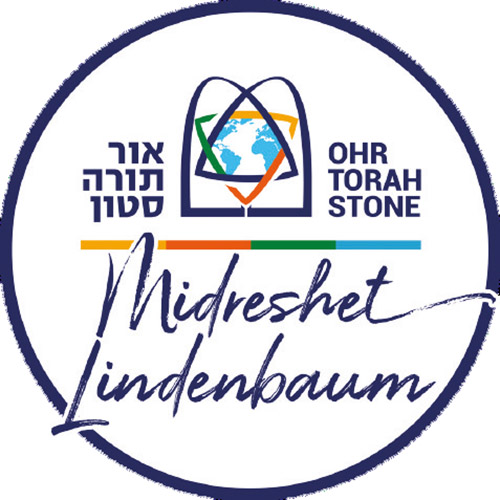
(Courtesy of Midreshet Lindenbaum) Chosen for their high level of Torah scholarship and dedication, students from Midreshet Lindenbaum’s Matmidot Scholars program have recently published a compilation of Torah articles focused on a variety of topics surveying issues in Tanach, Talmud and contemporary halacha.
Midreshet Lindenbaum, part of the Ohr Torah Stone network of educational institutions and organizations, has developed a reputation for catering to some of the brightest and most ambitious young women from both Israel and around the world. As an exclusive track within the seminary designed specifically for young women from outside Israel, the Matmidot Scholars program provides participants with the opportunity to research and write a Torah article under the guidance of a personal faculty mentor with whom they meet regularly throughout the year for guidance in their research and assistance with the writing and editing process.
“The Matmidot Scholars are an extraordinary group to work and learn with. They are passionate, engaged, talented, bright, and intellectually curious,” said Rabbanit Dena Rock, coordinator of the program. “These young women start thinking about their research projects even before they arrive in Israel. Part of their application process is writing a proposal about the topic they are interested in researching, what motivated their interest, and what they hope to gain from it. Their final papers truly reflect a year’s worth of effort, research and editing.”
The writing component of the Matmidot Scholars program thrives on a theme of “academic liberty” as students are given the freedom to decide which topics to explore and how to develop their own theses. Abby Kogan of Queens chose to study the story of the ‘dudaim,’ a reference to a specific flower that is found in only three sentences in the book of Bereishit. “I was continually surprised. I started with a pre-existing, biased understanding of the story in which I believed that the character was acting in a certain way and with a certain intent,” Kogan said. “But after a few weeks I started seeing it in a totally different way, and that kept happening again and again over the course of my studying the topic. I was excited to realize that my understanding of the story was changing based on where I was in life or which commentary I was reading.
“I was really excited by the opportunity to produce something physical—a research document—during my year at seminary,” Kogan continued. “Usually learning is very abstract, so producing an academic paper based on my own ideas was amazing. I felt free to just engage in research without any expectations regarding the outcome, and I loved reading the three pesukim over and over, all of the commentaries and approaches, and delving into the mysterious plans, the characters, their motivations and interpersonal relationships.”
Sami Gubin from Dallas focused on the symbolism in the Mishkan and the application of those symbols as a paradigm for the optimal Jewish experience. “The way in which each person can find individual meaning within any text in Tanach was profound for me,” she said. “It was fascinating to see how a piece by Josephus called ‘Antiquities in the Bible’ contained a lot of information about the meaning of the Mishkan that became common knowledge for everyone, Jews and non-Jews, long after the Mishkan was destroyed.
“I knew Midreshet Lindenbaum’s reputation as academic setting in which I’d be able to learn and really develop, and I was eager to join the Matmidot program because I wanted interaction with incredible role models,” added Gubin, who will be attending the Queens College Scholars Program in the fall. “I realize that I received even more than I could have imagined, how much I’ve grown as a person and religiously from interacting with so many types of people. I feel incredibly pleased to have participated in this program and have felt my confidence in writing grow. I now know that I have more opportunities to write and voice my opinion to the larger Jewish world.”
Other topics explored in the journal include Tekoa Sultan-Reisler’s piece on how the Torah and oral tradition urge the Jewish people to promote environmental activism and progressive climate policies. “I was most surprised by how shemitah was a central piece of the economic system in ancient Israel,” the 18-year-old from Silver Spring, Maryland said, noting that Israel is currently experiencing the shemitah year. “This periodic ‘reset button’ is not just a rest for the land, but also an opportunity for debt forgiveness to help close the wealth gap developed over the prior six years. I also found many other concepts applicable to a non-agrarian society that are as relevant today as in ancient times.”
The Matmidot program was created to expose the next generation of female scholars to inspirational leaders and changemakers in Israeli society, and to allow them to take their learning and growth to the next level as scholars, leaders and writers on their campuses and in their communities. “Being exposed to different ideas helped me grow,” confirmed Vivian Cohen of Brooklyn, whose article focused on the roots of faith in Tanakh. “My teachers and mentor are amazing; my learning has improved and so has my dedication. I feel inspired and because my learning now has a physical representation; I know I will look back and be proud.”










